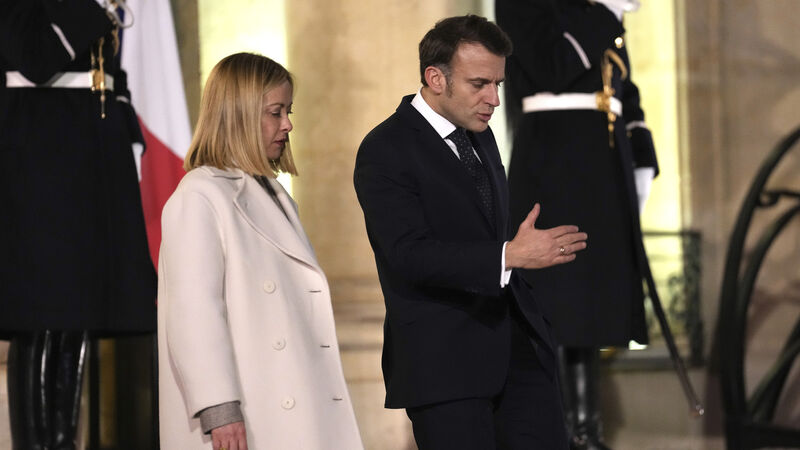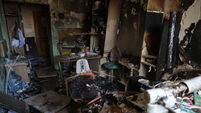EU leaders call for greater defence spending as rift with US grows

French president Emmanuel Macron walks with Italy's prime minister Giorgia Meloni, after the meeting of leaders from key European Union nations and the United Kingdom, in Paris, Picture: Aurelien Morissard/AP
European leaders meeting in Paris on Monday for emergency talks called for higher spending to ramp up the continent's defence capabilities but remained split on the idea of deploying peacekeepers to Ukraine to back up any peace deal.
The Paris meeting was called by French president Emmanuel Macron after US president Donald Trump arranged bilateral peace talks with Russia, excluding European allies and Ukraine from negotiations to end the war that are scheduled to begin in Saudi Arabia.














